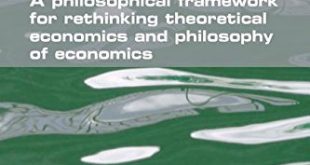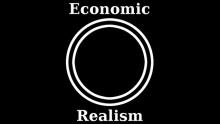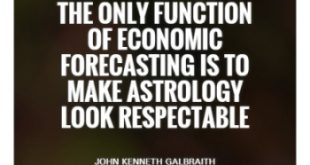RCTs — the illusion of assumption-free learning Blinding is rarely possible in economics or social science trials, and this is one of the major differences from most (although not all) RCTs in medicine, where blinding is standard, both for those receiving the treatment and those administering it … Subjects in social RCTs usually know whether they are receiving the treatment or not and so can react to their assignment in ways that can affect the outcome...
Read More »The limitations of RCTs (wonkish)
The limitations of RCTs (wonkish) Yours truly is extremely fond of science philosophers and economists like Nancy Cartwright and Angus Deaton. With razor-sharp intellects they immediately go for the essentials. They have no time for bullshit. And neither should we: Randomised controlled trials (RCTs) have been sporadically used in economic research since the negative income tax experiments between 1968 and 1980 … and have been regularly used since then to...
Read More »Does economics — really — need models?
Does economics — really — need models? A common idea among mainstream — neoclassical — economists is the idea of science advancing through the use of ‘as if’ modeling assumptions and ‘successive approximations’. But is this really a feasible methodology? I think not. Most models in science are representations of something else. Models ‘stand for’ or ‘depict’ specific parts of a ‘target system’ (usually the real world). All theories and models have to use...
Read More »Rethinking philosophy of economics
Rethinking philosophy of economics In this book Gustavo Marqués, one of our discipline’s most dexterous and acute minds, calmly investigates in depth economics’ most persistent methodological enigmas. Chapter Three alone is sufficient reason for owning this book.Edward Fullbrook, University of the West of England Is ‘mainstream philosophy of economics’ only about models and imaginary worlds created to represent economic theories? Marqués questions this...
Read More »The main problem with mainstream economics
The main problem with mainstream economics Many economists have over time tried to diagnose what’s the problem behind the ‘intellectual poverty’ that characterizes modern mainstream economics. Rationality postulates, rational expectations, market fundamentalism, general equilibrium, atomism, over-mathematisation are some of the things one have been pointing at. But although these assumptions/axioms/practices are deeply problematic, they are mainly...
Read More »The wisdom of crowds
The wisdom of crowds [embedded content]
Read More »Bayesian rationality — nothing but a probabilistic version of irrationalism
Bayesian rationality — nothing but a probabilistic version of irrationalism The initial choice of a prior probability distribution is not regulated in any way. The probabilities, called subjective or personal probabilities, reflect personal degrees of belief. From a Bayesian philosopher’s point of view, any prior distribution is as good as any other. Of course, from a Bayesian decision maker’s point of view, his own beliefs, as expressed in his prior...
Read More »Uskali Mäki and Tony Lawson — different varieties of realism
Uskali Mäki and Tony Lawson — different varieties of realism We are all realists and we all—Mäki, Cartwright, and I—self-consciously present ourselves as such. The most obvious research-guiding commonality, perhaps, is that we do all look at the ontological presuppositions of economics or economists. Where we part company, I believe, is that I want to go much further. I guess I would see their work as primarily analytical and my own as more critically...
Read More »Truth and validity
[embedded content] Mainstream economics has become increasingly irrelevant to the understanding of the real world. The main reason for this irrelevance is the failure of economists to match their deductive-axiomatic methods with their subject. It is — sad to say — a fact that within mainstream economics internal validity is everything and external validity and truth nothing. Why anyone should be interested in that kind of theories and models — as long as mainstream economists...
Read More »Friedman’s ‘as if’ methodology — a total disaster
Friedman’s ‘as if’ methodology — a total disaster The explicit and implicit acceptance of Friedman’s as if methodology by mainstream economists has proved to be disastrous. The fundamental paradigm of economics that emerged from this methodology not only failed to anticipative the Crash of 2008 and its devastating effects, this paradigm has proved incapable of producing a consensus within the discipline of economics as to the nature and cause of the...
Read More » Heterodox
Heterodox








